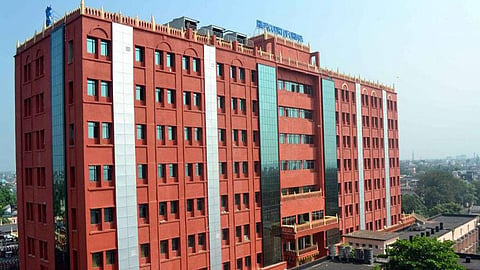

CUTTACK: The Orissa High Court has set aside the single judge’s order for a one-time six-year relaxation of the upper age eligibility for applying to the posts of constables/sepoys in Odisha Police.
While disposing of a batch of writ appeals filed by the state government, the court set aside the single judge’s December 5, 2024, order after the former suo motu came up with a three years upper age relaxation as a “one-time benevolent measure” on March 25.
In the order uploaded on March 28, the division bench of Justice Arindam Sinha (then Acting Chief Justice) and Justice MS Sahoo said, “On query from court, respondents, through their advocates, accept the benevolent measure of being given three years upper age relaxation in respect of categories of candidates, who appeared in the written examination pursuant to advertisement dated 22nd September, 2024.”
“We have ascertained that respondents in the appeals concede their grounds of opposition to impugned Single Judge’s order being interfered with in appeal, by accepting the upper age relaxation granted by state. Impugned judgment is, therefore, set aside,” the division bench said. As per case records, the State Selection Board (Odisha Police) invited applications for 1,360 posts of constables/sepoys across different battalions through an advertisement issued on September 22, 2024. Several candidates who had crossed 23 years of age challenged the upper age limit saying they were adversely affected by delays caused by the Covid-19 pandemic and the prolonged non-advertisement of posts.
Considering the petitions, the single judge issued the six-year age relaxation order on December 5, 2024. Consequently, candidates qualifying under the six-year age relaxation were allowed to appear the written examination.
But when the state government filed a batch of appeals against the order, the division bench had issued an interim stay on the appointment process undertaken on the basis of advertisement issued on September 22, 2024. The division bench had asked the state government to consider granting relaxation, not as compelled by direction on adjudication, but by themselves.
On March 25, advocate general Pitambar Acharya submitted a written note saying a high-level meeting held under the chairmanship of the chief minister decided that as a one-time benevolent measure in the larger interest of the candidates who have appeared in the written examination, they will be given three years upper age limit relaxation.